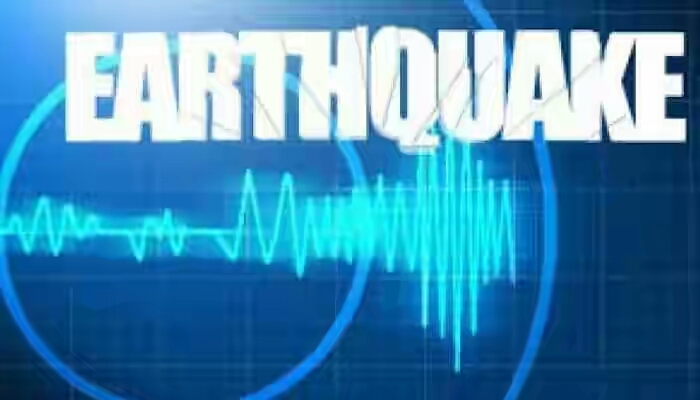Strong big earthquakes in 2018: US scientists

If a prediction by two US scientists were true then the world could see an increase in the number of strong earthquakes in 2018 and the next few years, a media report said.
Washington: If a prediction by two US scientists were true then the world could see an increase in the number of strong earthquakes in 2018 and the next few years, a media report said.
Roger Bilham of the University of Colorado and Rebecca Bendick of the University of Montana, who presented their research at the annual conference of the Geological Society of America recently, argued that there is a clear correlation between the speed of earth`s rotation and global earthquake activity, Xinhua news agency reported.
"On five occasions in the past century, a 25-30 per cent increase in annual numbers of (earthquakes of magnitude 7.0 or greater) has coincided with a slowing in the mean rotation velocity of the earth, with a corresponding decrease at times when the length-of-day (LoD) is short," the duo said in a research abstract.
"The correlation ... can be shown to precede seismicity by 5-6 years, permitting societies at risk from earthquakes an unexpected glimpse of future seismic hazard."
CLOSE
Search Zee News
HOME
LIVE TV
INDIA
STATES
WORLD
BUSINESS
SPORTS
TECHNOLOGY
SCIENCE & ENVIRONMENT
ENTERTAINMENT
LIFESTYLE
HEALTH
BLOGS
PHOTOS
VIDEOS
CONTACT US PRIVACY POLICY LEGAL DISCLAIMER COMPLAINT INVESTOR INFO CAREERS WHERE TO WATCH
PARTNER SITES:
HINDI NEWS MARATHI NEWS BENGALI NEWS TAMIL NEWS MALAYALAM NEWS WION DNA ZEE BUSINESS
MORE APPS
CONNECT WITH US
Strong big earthquakes in 2018: US scientists
IANS | Last Updated: Monday, November 20, 2017 08:01 AM IST
If a prediction by two US scientists were true then the world could see an increase in the number of strong earthquakes in 2018 and the next few years, a media report said.
Washington: If a prediction by two US scientists were true then the world could see an increase in the number of strong earthquakes in 2018 and the next few years, a media report said.
Roger Bilham of the University of Colorado and Rebecca Bendick of the University of Montana, who presented their research at the annual conference of the Geological Society of America recently, argued that there is a clear correlation between the speed of earth`s rotation and global earthquake activity, Xinhua news agency reported.
"On five occasions in the past century, a 25-30 per cent increase in annual numbers of (earthquakes of magnitude 7.0 or greater) has coincided with a slowing in the mean rotation velocity of the earth, with a corresponding decrease at times when the length-of-day (LoD) is short," the duo said in a research abstract.
"The correlation ... can be shown to precede seismicity by 5-6 years, permitting societies at risk from earthquakes an unexpected glimpse of future seismic hazard."
Fluctuations in earth`s rotation are tiny, changing the length of the day by several milliseconds, but these minute changes could be enough to release vast amounts of underground energy, the two scientists said.
They could not explain exactly what happened but they suspected that slight changes in the behaviour of earth`s core may be responsible for this effect.
They also said the observed relationship is unable to indicate precisely when and where these future earthquakes will occur, but most of the additional strong earthquakes have historically occurred near the equator in the West and East Indies.
"Whatever the mechanism, the 5-6 year advanced warning of increased seismic hazards afforded by the first derivative of the LoD is fortuitous, and has utility in disaster planning," they wrote.
"The year 2017 marks six years following a deceleration episode that commenced in 2011, suggesting that the world has now entered a period of enhanced global seismic productivity with a duration of at least five years."
Hi! I am a robot. I just upvoted you! I found similar content that readers might be interested in:
https://in.news.yahoo.com/us-scientists-predict-more-big-earthquakes-2018-231204249.html